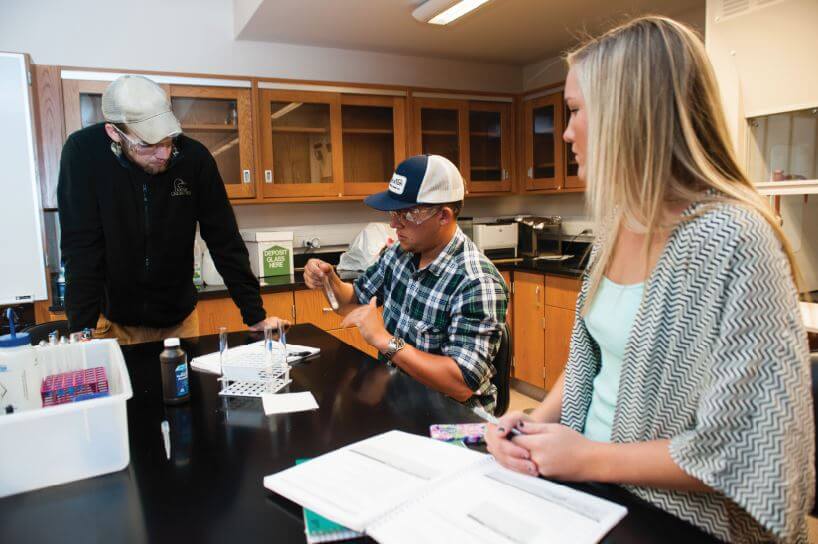Caroline County Workforce
Caroline County Workforce Profile
Employment in Selected Occupations
- 26.0% Management, science, business and arts
- 22.3% Service
- 22.0% Sales and office
- 14.4% Production, transportation and material moving
Additional County Information
- 9,721 Residents commute outside the county for work
- 82.8% of residents are high school graduates or higher
- 15.5% of residents have a bachelor’s degree or higher
Data source: “Brief Economic Facts: Caroline County” from the Maryland Department of Commerce
Caroline Career & Technology Center (CCTC)
The Caroline Career & Technology Center is home to the career & technology education (CTE) programs for local high school students. We work closely with CCTC to ensure school curriculums align with local business needs.The Caroline Career & Technology Center is home to the career & technology education (CTE) programs for local high school students. We work closely with CCTC to ensure school curriculums align with local business needs.
Advanced Manufacturing Professionals (AMP)
The AMP program prepares students for local manufacturing careers. Students graduating from the program will be prepared to take the Manufacturing Skills Standards Council (MSSC) Certified Production Technician (CPT) certification.
AMP is a hands-on course of study. Students will be working closely with local businesses to complete projects based on real-world problems. There are more than a dozen local businesses actively involved with the AMP program.
Students enrolled in AMP are expected to:
- Understand the manufacturing process and the interaction of skilled trades, designers/engineers, and managers
- Demonstrate an understanding of electricity as it relates to applications of manufacturing, including solving context-based algebraic problems related to Current, Ohm’s Law, Kirchoff’s Law, Resistance, selection of proper wire sizes and installation needed for production circuitry, proper use of electrical motors, AC/DC industry applications including use and control of motor components, troubleshooting, electrical blueprint and schematic reading
- Demonstrate an understanding of fluid mechanics and power systems as they relate to manufacturing and maintenance processes including the application and understanding of: pneumatic systems, electro fluid power, belt drive systems, motor selections, hydraulics, and automated electro mechanical systems controlled by PLCs
- Demonstrate an ability to read, interpret and prepare technical plans, blueprint drawings, schematics and technical manuals
- Demonstrate an ability to design a product in CADD and build to final product
- Demonstrate the use of basic and advanced design principles
- Develop and practice professional career and work readiness skills
- Demonstrate precision measurement, cutting and finishing processes
- Diagnose and solve industry-specific problems using the scientific method
- Demonstrate the principles of lean production and workshop management• Identify and use the materials and tools used in the product, prototyping and engineering process
- Demonstrate project management skills including designing, engineering, assembly, and completion of a high-quality product by a deadline
Other CCTC Programs
There are many career pathways offered to local students. We work with school staff to facilitate relationships between educators and businesses in each of these programs.
- Agriculture
- Auto Tech
- Biomed (Project Lead the Way)
- Business
- Computer Science
- Construction
- Cosmetology
- Culinary
- Early Childhood
- Engineering (Project Lead the Way)
- Health Occupations
Chesapeake College
Chesapeake College offers degree programs, certificate programs, career training, non-credit workforce training, and lifelong learning. We work closely with the college to align training programs with local business needs. Please visit the Chesapeake College website to learn more.
Other Regional Higher Education Institutions
University of Maryland Eastern Shore
University of Maryland University College

Other Workforce Partners
We work with a great team of regional and state workforce development partners. We frequently convene these partners to help expanding and relocating businesses with their hiring needs.
Maryland Dept. of Labor, Licensing & Regulation
DLLR has local representatives who can help businesses recruit qualified applicants. DLLR also manages a jobs club for veterans and helps ex-offenders transition to employment.
Upper Shore Workforce Investment Board
The local WIB manages federally funded training programs for unemployed and underemployed workers. They can assist with filling open positions, and they also assest employees affected by downsizing.
Maryland Manufacturing Extension Partnership (MEP)
Maryland MEP provides training programs specific to manufacturing. They work directly with employers to tailor training to their needs.
